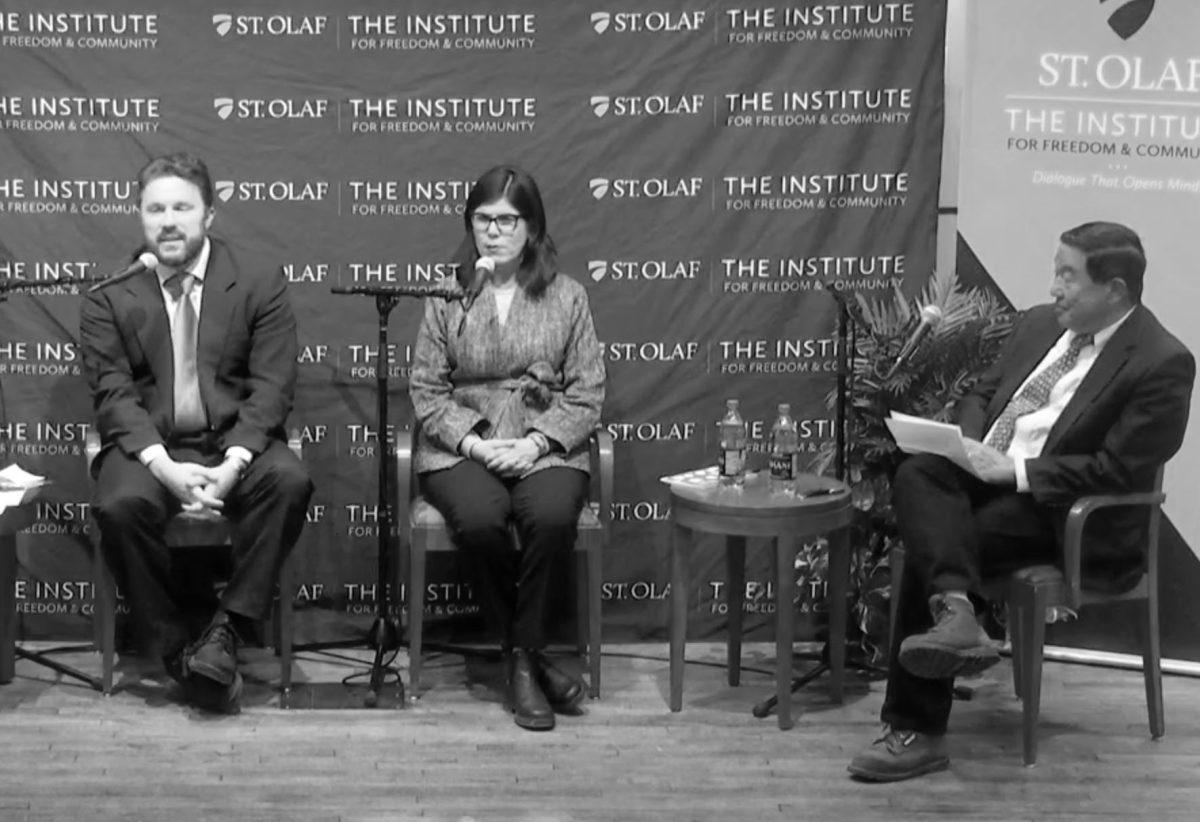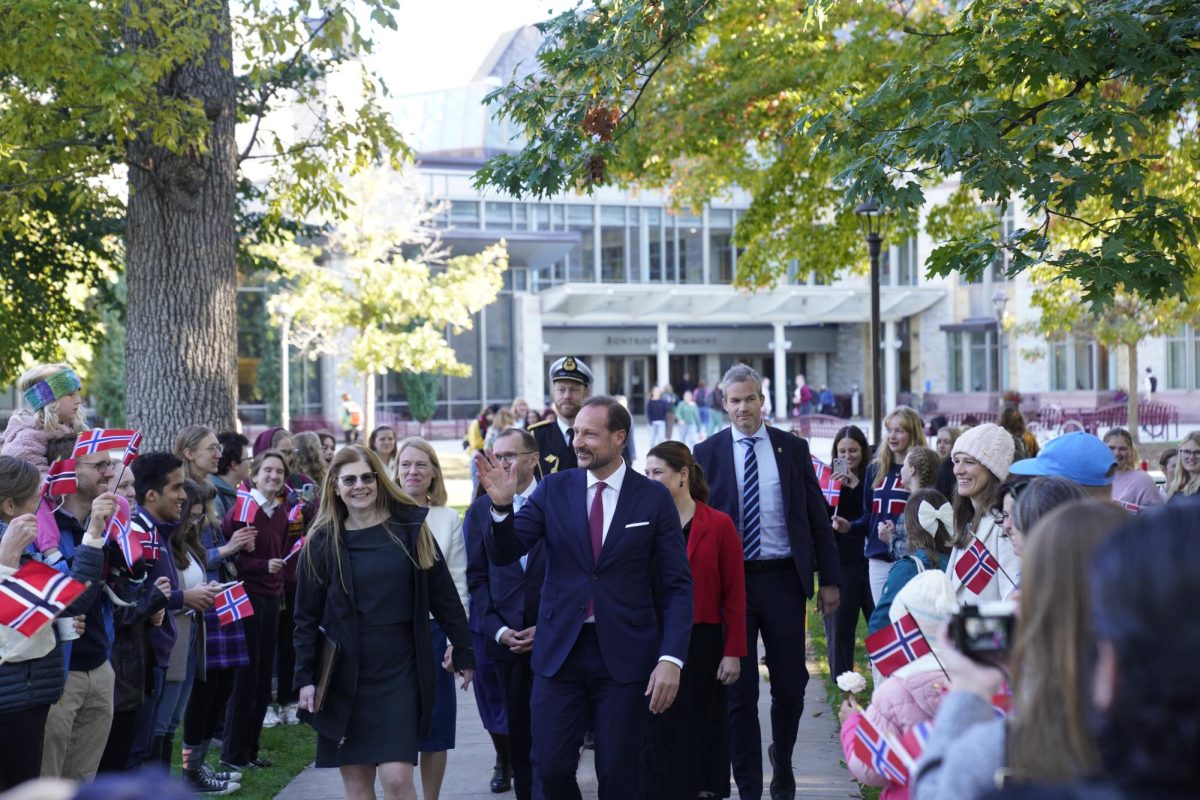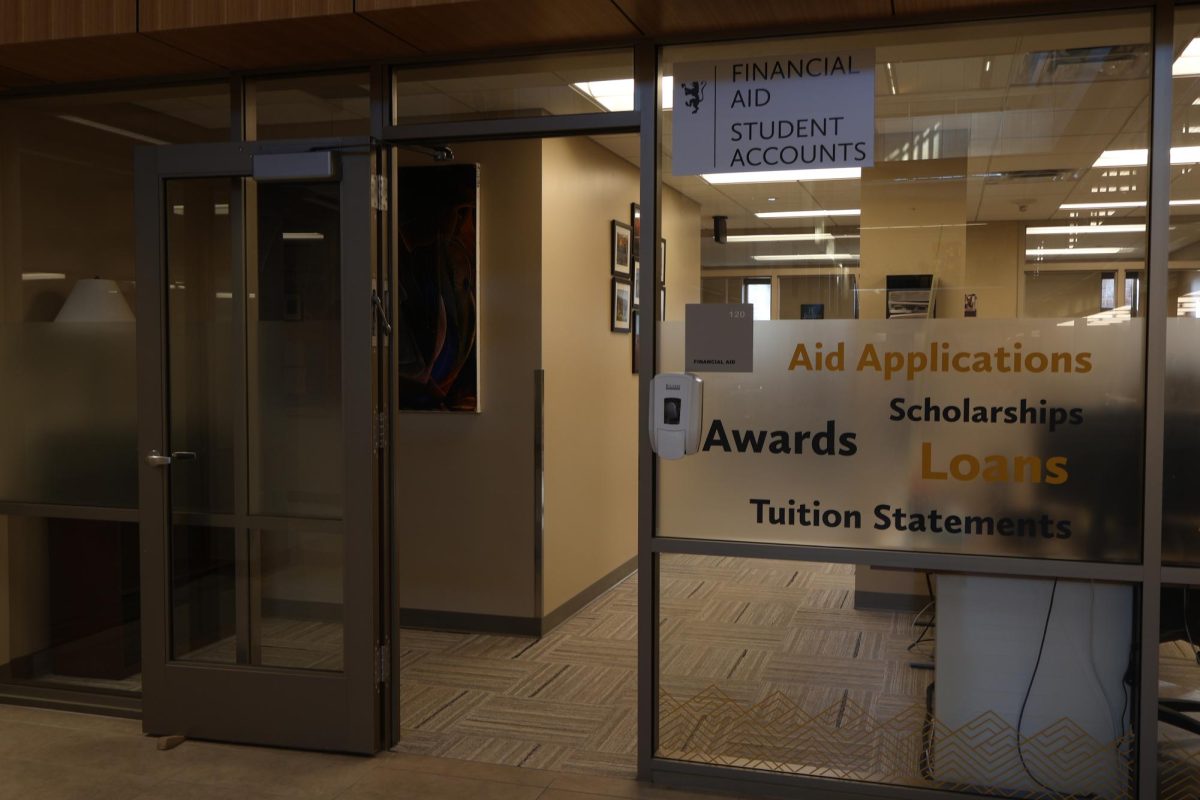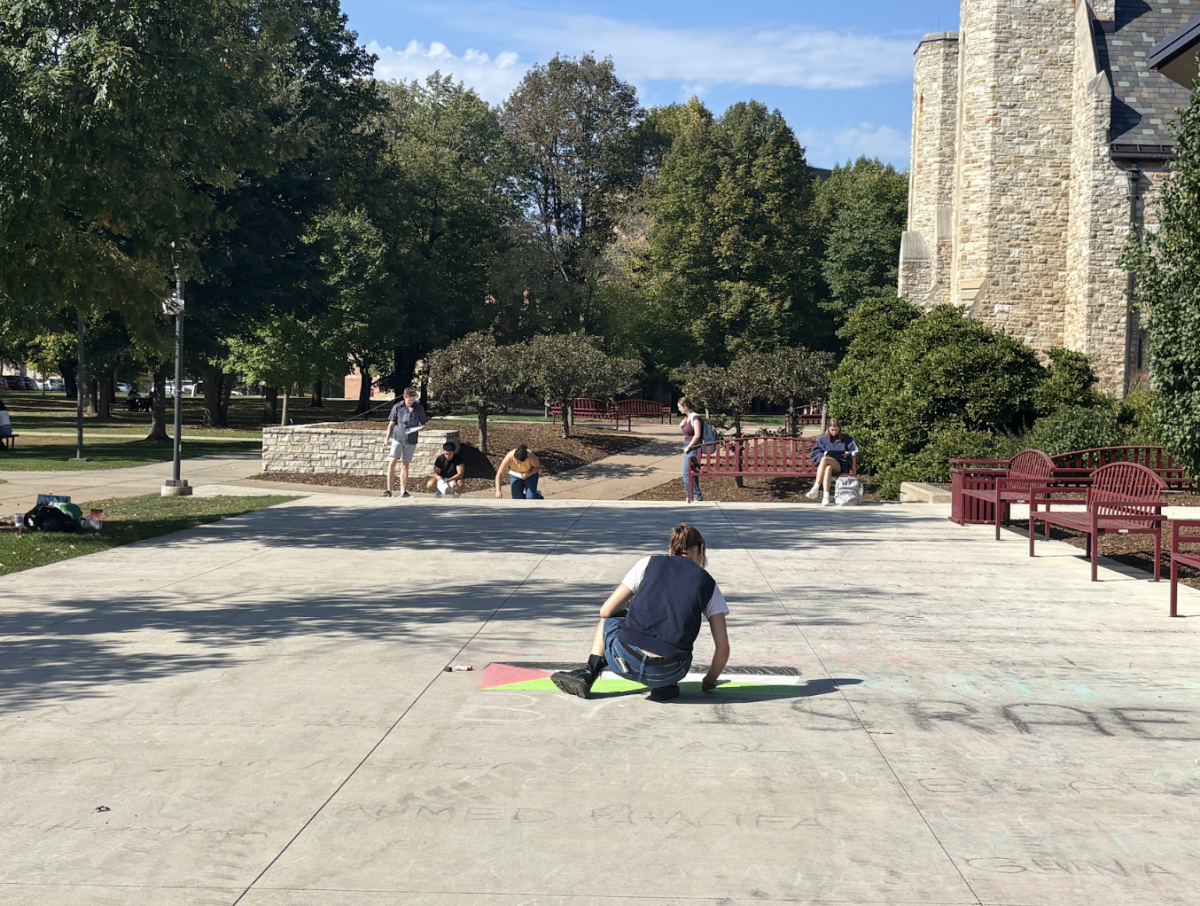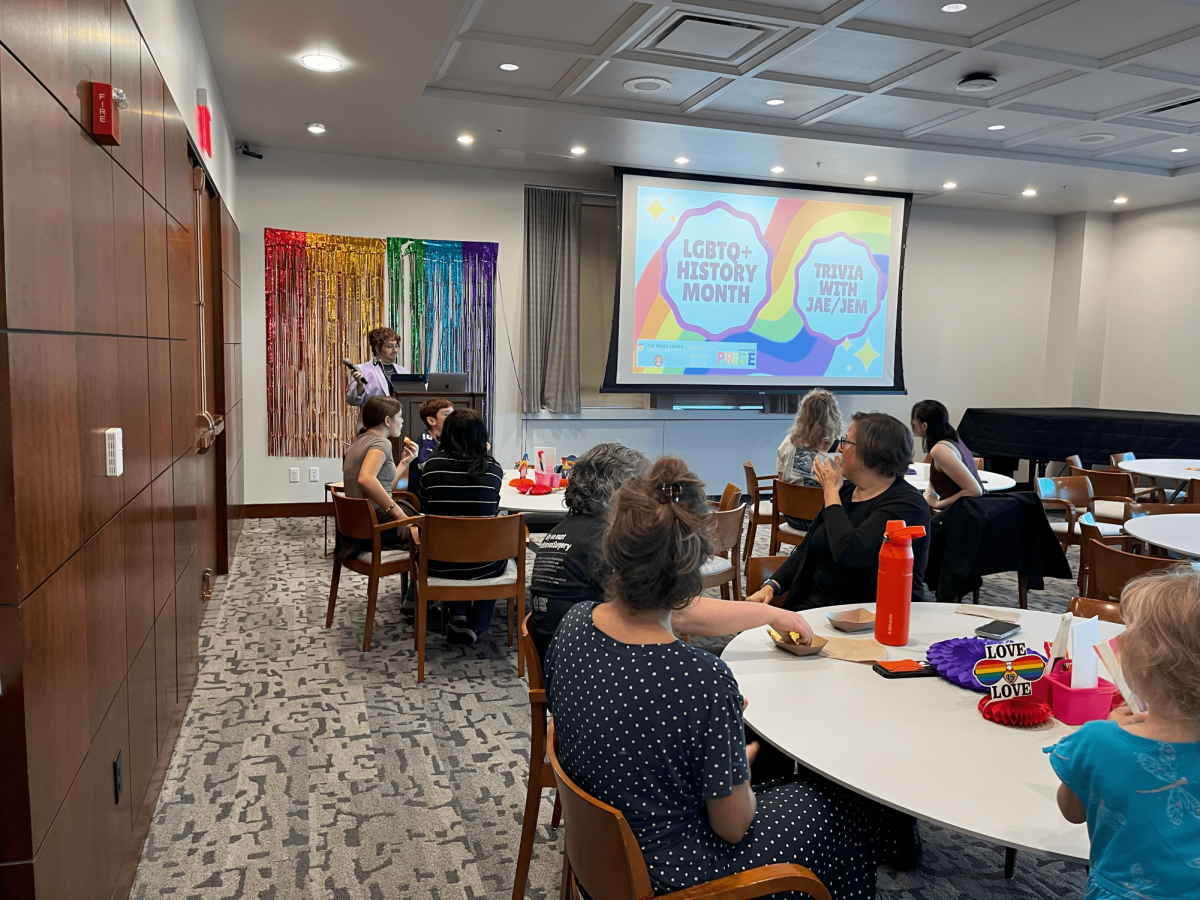The Institute for Freedom and Community hosted a conversation titled “The Immigration Trilemma: Local Sovereignty, Freedom of Movement, and the Global Community” on Tuesday, Feb. 19. The discussion between three scholars with different views on immigration policy is the first of four events in the Institute’s spring series, “Who is my neighbor? Immigration, freedom and community.”
Moderated by Morrison Family Director of the Institute Edmund Santurri, the conversation featured Jason Brennan, a Professor at the McDonough School of Business at Georgetown University, Natalia Molina, Professor of American studies and ethnicity at the University of Southern California and Jan Ting, Professor of Law Emeritus at Temple University Beasley School of Law. Each participant offered different perspectives on domestic and global immigration.
“When we justify a government shutdown, it is drawing on these stereotypes that have been around for a long time.” – Natalia Molina
Brennan introduced a normative economic approach to immigration, arguing for a complete opening of borders worldwide. He placed sincere emphasis on the universal relevance of the immigration debate.
“The most important issue we can talk about is immigration,” Brennan said.
Building off of Brennan, Molina emphasized the racial and cultural stereotypes that surround the immigration debate and urged a greater historical understanding of the issue.
“We think about [Mexicans] not just as immigrants devoid of race but also through these race-making practices,” Molina said. She also expanded upon the current divisiveness of U.S. immigration practices.
“When we justify a government shutdown, it is drawing on these stereotypes that have been around for a long time,” Molina said.
In contrast to Brennan, Ting argued for more restrictive immigration policies.
“The real controversy of immigration is not whether we should respect or admire immigrants, of course we should,” Ting said. “The real issue is how many – whether we should have a limit or not.”
When discussing the topic of asylum with immigration, Ting argued for the strict definition of refugee status enforced to moderate immigration. Thinking domestically, Ting contended that Congress has done its job in setting limits and has properly reflected the wishes of the American people.
The audience asked the panelists questions about how immigration policies such as Deferred Action for Childhood Arrivals (DACA) and the proposed border wall factor into the debate on immigration. Other questions were also raised to the panel concerning the larger scope of immigration and its effect on the world.
Brennan, Molina and Ting maintained their individual positions in response to these questions, with Brennan urging for the betterment of the global economy with no restrictions, Molina characterizing DACA and the wall within her race-conscious, historical perspective and Ting urging a pragmatic understanding of the issue rooted in legality and the rules of politics.
The Institute will continue its spring series on Tuesday, March 19 with the lecture entitled “Immigration and the New Class War,” featuring Professor of Public Affairs Michael Lind. The event will take place at 7 p.m. in Viking Theater.
